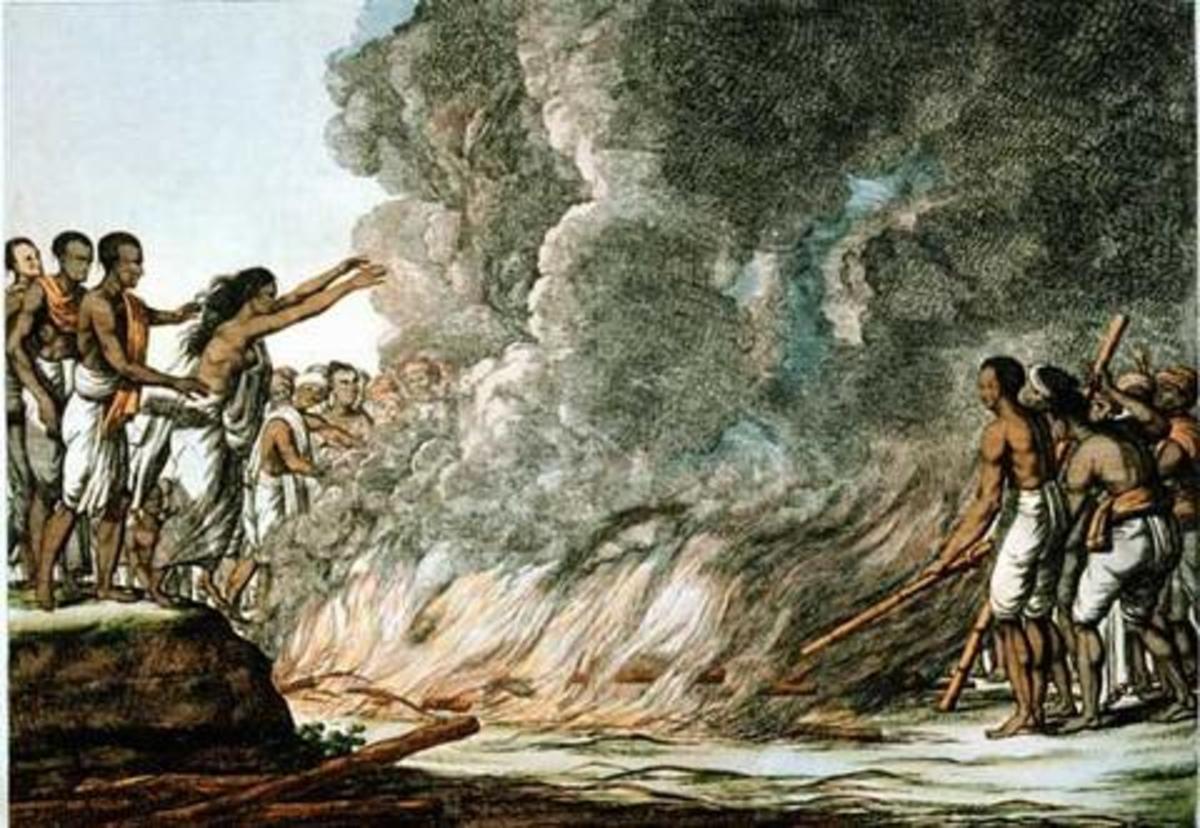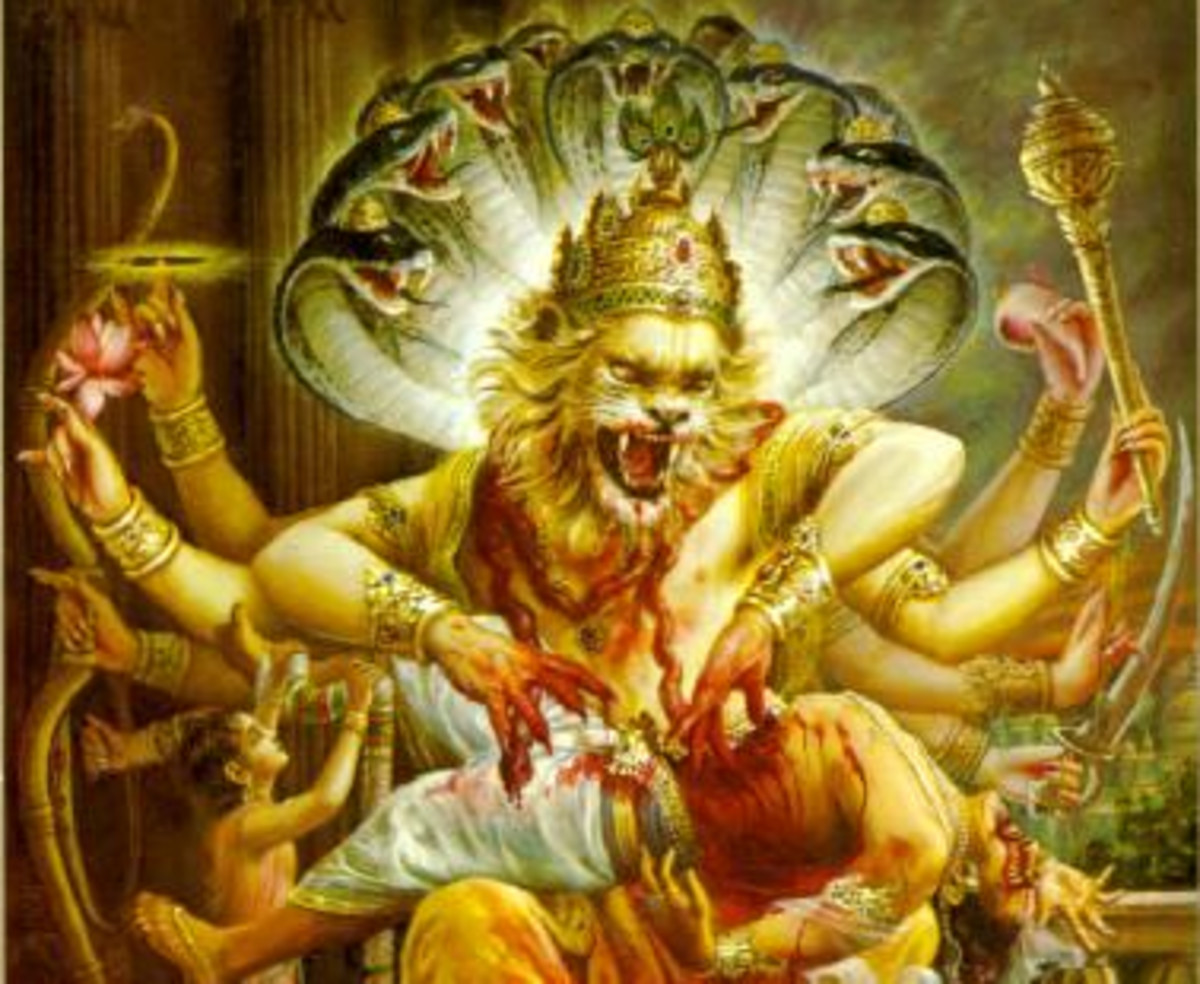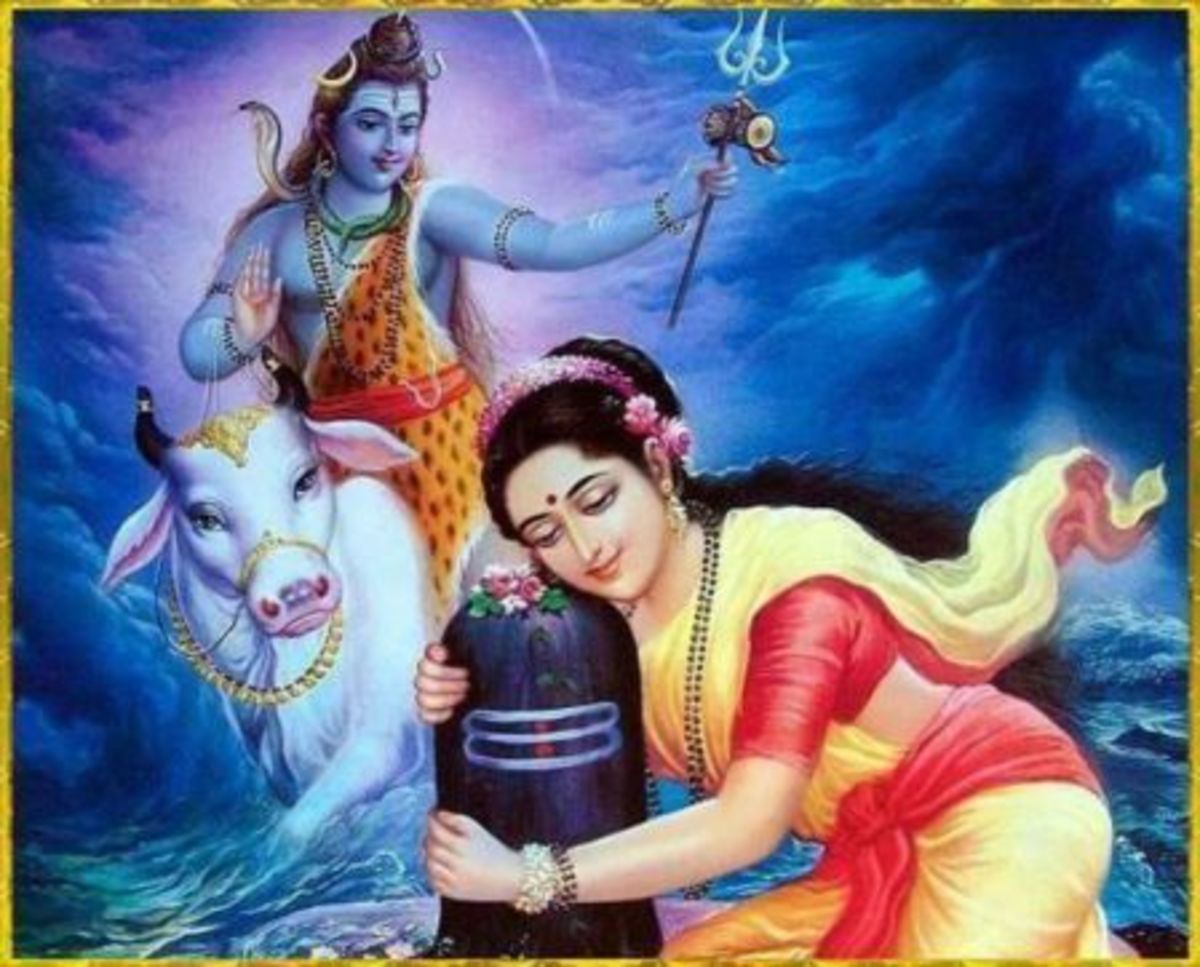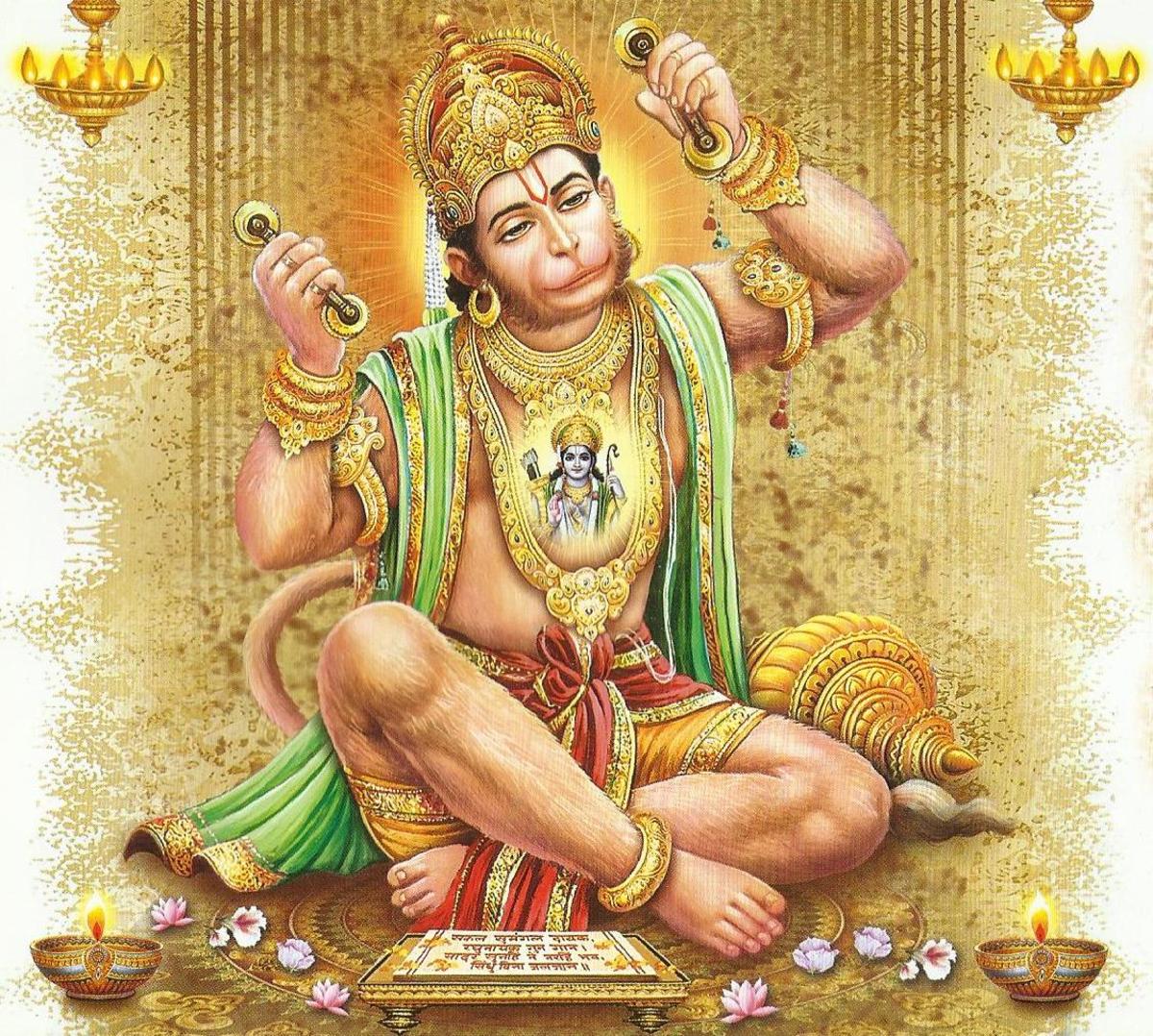COMPARATIVE RELIGION: JUDAISM & HINDUISM
Two Ancient Traditions
Hinduism is the world's oldest major world religion. Judaism came later, but it is another ancient world religion practiced all over the world. What do they have in common? More similarities than you might think, considering some of their differences.
Priests were important to both traditions. They enacted certain rituals, including giving offerings to God. In ancient times Jewish priests sacrificed animals on the altar. They also had grain offerings. In modern times the sacrifice of animals has been abolished. In Hinduism the sacrifice is the yagna. In modern times Hindus offer fruits, flowers, water and other similar substances at their temples and homes. In ancient times yagnas often included a horse sacrifice. In the Gita Krishna expounded on a discourse on what is needed for an offering, making the Gita the modern guide for offerings. A minority of Hindus offer the blood of animals to Mother Kali, but this is not the common, accepted practice.
Both traditions emphasize the teacher. In Hinduism the teacher is called the pandit, priest or priestess, the swami or preceptor. In Judaism the teacher is the rabbi. Education is very highly valued in both traditions.
Both traditions put an emphasis on the home as a place for rituals. The family is important in both traditions, so home rituals are important. The puja (prayer ceremony) in Hinduism is conducted in both the temple (mandir) and the home. The Seder and the Festival of Hannukkah are two important rituals practiced in the Jewish home.
It is interesting to see that each believe in God as having sovereignty over the Earth. The Native Americans also believe the Earth belongs to the Creator. In Psalm 24, in the Old Testament, the psalmist writes, "The Earth belongs to the Lord and everything in it--the world and all its people. God built it on the waters." Several Hindu pandits talk about how we do not own anything because it belongs to God. This philosophy is very ecological. If you believe the Earth belongs to God, you take care of it as a steward. This is the true meaning of the concept of dominion over the Earth, given to humanity, in the chapters of Genesis. Dominion is more like a ruler taking care of the domain as a sacred trust. In Hinduism the king or queen took an oath to take care of the realm like a steward or enacting a sacred trust. Having dominion does not mean doing anything you want with nature. That is a gross misunderstanding of Genesis. It is more like looking out for the common good and protecting nature.
The Flood Story and Story of Job in Judaism are also found in Hinduism. The characters are different, but the stories and principles are the same in both stories. I shared this with a Jewish university student who visited our mandir. There is Universal Truth found in these stories. Joseph Campbell has written extensively about these universal stories and calls them myths. Myths are about Universal Truth, not necessarily about literal truth. Universal Truth is greater and more important than literal truth.
Sraddhadeva Manu or Vaivasvata Manu, one of the 14 Manus, was the son of Vaivasvat (father) and Saranya (mother). That is why he is called Vaivasvata Manu. The original Manu was the original Law Giver in Hinduism. In Judaism the Law Giver was Moses, who gave the 10 Comandments to humanity. Vaivasvata is the Hindu Noah in our flood story. He was the King of Dravida during the time of the Matsya Purana. Manu caught a fish who begged him to rescue it. The fish told him that a Great Flood was about to destroy the Earth. He placed the fish in a pot, tank, a lake and then the ocean as the size of the fish grew each successive day. Matsya, the Fish, is an incarnation of Lord Vishnu, the preserving/sustaining aspect of God. Once Manu was in the ocean, the Fish told him to build the boat before the arrival of the flood, just like Noah did. The Fish towed the boat by a cable attached to his large horn. Manu married Shaddha who became the mother of 10 children. Ila and Ikshavaku, two of these children, were the progenitors of the Lunar Dynasty and Solar Dynasty. The Solar Dynasty is the dynasty during the time of Krishna. Most of the world's traditions have some version of the Flood Story. Sediments were discovered which are geologically consistent with a large flood in ancient times in different places on the Earth.
King Harishchandra is the Hindu Job, who was a truthful and pious king, who was tested by a sage named Vishwamitra, through the blessing of the deities. Like Job, he went through many trails. The sage approached the king about the promise he made to give the sage his kingdom in a dream. Next the king went to Varnasi, the city dedicated to Lord Shiva. The sage asked for a monetary donation. The King had to sell his wife and son to a Brahmin Griastha to pay for this donation. He had to sell himself to a guard at a cremation ground to satisfy the sage. The king's son died from a snake bite in a garden. The mother could not pay the taxes for his cremation on her own, so she had to sell her golden mangalsutra to pay the tax. She offered half of her only dress (sari) as a tax payment. As she started to remove her dress, Vishnu, Indra and devas appeared with Sage Vishwamitra. Harishchandra's son came back to life. Harishchandra ended up in heaven with his wife. His son, Rohitashwa, became the king of the kingdom, which is the town of Rohtas Garh in the Rohtas District, Bihar. In the story of Job, he is tested in every way, losing his health, wife and family. All were restored to him at the end. Job was also a devout, pious man, much like King Harishchandra. Lucifer made a deal with God to test Job, much like the sage made a deal with the deities to test the king.
Both traditions have festivals based on the light theme. Divali honors Lord Rama and Mother Sita, who returned after defeating evil Ravana, who had abducted Sita. Hindus light deers on this night. Hannukah, which starts on December 20th this year, is also a light celebration. It celebrates the Jews' victory over the Syrians and the Re-dedication of the Temple at Jerusalem. Each night the candelabra (Menorah) is lit for the eight days of the festival. The light over came the darkness in both stories. Many traditions have festivals and celebrations this month and all of them are based on the concept of light. Happy Holidays! Bring in the Light!
JAI SHRI LIGHT!
Radhapriestess








